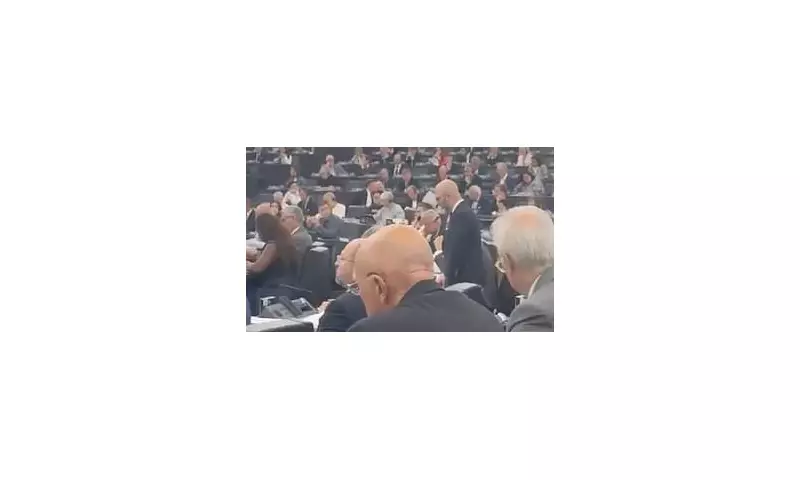
A solemn moment of remembrance descended into political pandemonium in the European Parliament, exposing the deep ideological fractures within the institution.
The chamber, typically a forum for measured debate, became an arena for raw emotion after a group of left-wing MEPs pointedly refused to observe a minute's silence honouring the victims of the 2015 Charlie Hebdo terrorist attack. The controversial move instantly ignited fury amongst right-wing politicians.
A Chamber Divided
The incident was triggered by German MEP Nicolaus Fest of the Identity and Democracy group. He requested the silence to mark the anniversary of the horrific attack on the satirical magazine's Paris office, where Islamist extremists murdered twelve people.
As the majority of the chamber rose to pay their respects, a bloc of left-wing members, primarily from The Left group, remained conspicuously seated. This act of defiance was not one of silence, but a loud political statement that reverberated across the hall.
From Silence to Screaming Match
The refusal acted as a spark to tinder. Right-wing MEPs erupted in outrage, shouting accusations of disrespect and sympathising with terrorism. The scene rapidly devolved into a chaotic screaming match, with politicians jabbing fingers across the aisle.
One right-wing Italian MEP was captured on video screaming "Shame on you!" repeatedly towards the left-wing bloc, his voice trembling with anger. The presiding official's attempts to restore order were largely drowned out by the cacophony of mutual recrimination.
The Justification and The Backlash
Members of The Left group later defended their position, arguing that holding a silence for Charlie Hebdo was a "selective commemoration" that failed to acknowledge victims of other violence. They stated their commitment to free speech but opposed what they saw as a politicised and hypocritical gesture.
This justification was swiftly condemned by critics across the political spectrum. Many argued that refusing to honour journalists murdered for exercising free speech is an indefensible position, regardless of political affiliation. The scandal highlights the increasingly toxic and performative nature of political discourse within the European Union's key legislative body.





